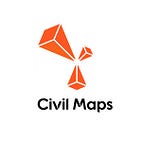To Build an Atlas
By Sravan Puttagunta, CEO of Civil Maps
At Civil Maps, we’ve developed technology that allows analog and autonomous test vehicles to navigate roads using crowdsourced, HD, 3D maps rather than current, high-latency and high-compute methods. We are excited to share with you one key part of this solution, designed for those working on self-driving cars. 2016 was a pivotal year for our company with regard to software development. We made tremendous progress, but quickly realized we needed a hardware system to prove out those achievements. We couldn’t find anything that would outperform traditional methods in cost, safety, and mass-market adoption readiness. So, we set out to architect a solution that we are sharing with you today, called Atlas DevKit. It is a car-mounted hardware unit and companion software suite, built for enabling developers to affordably create and utilize high definition, machine readable maps that can be crowdsourced.
Over the past few months, we’ve worked with some of the most innovative automotive companies in the world. Setting their sights on full vehicle autonomy, they are working with our Atlas DevKit to convert sensor data into 3D semantic map data in real-time. The platform is a cost-effective, scalable software and hardware combination that enables localization in six dimensions, map creation, and crowdsourcing — all essential to ensuring the safe navigation and operation of a self-driving car.
While it would have been ideal to utilize existing hardware solutions to demonstrate the capabilities of our software, the current methods employed for surveying and outdoor 3D map creation boast price tags and technical complexities that drive the cost of acquisition and operation far higher than is acceptable to test or deploy at scale. Running expensive survey equipment, uploading data after completing a survey, and building maps offline maximizes latency and removes the potential for real-time updates. To enable truly precise crowdsourced maps, the system must be able to localize the vehicle and ingest and analyze data in real time. Our solution required much heavier constraints on cost (sensors, compute, and data transfer) in order to accomplish our goals.
By utilizing an affordable ARM processor and simple off-the-shelf components, we were able to drastically reduce both the cost and the size of the system. This means that it can be mounted to a standard roof rack on any vehicle to increase the potential number of vehicles contributing to the map. Through testing and validation, we were able to determine optimal mounting configurations for the unit to ensure that the sensors are able to capture sufficient data to properly localize the vehicle and identify features on and around the roadway.
Because the Atlas DevKit is sensor agnostic, our partners are able to customize it to fit their testing needs. With Atlas Lite DevKit, “they can bring their own sensor” and still use our software solutions. With significant cost-savings and ease of use, our partners can immediately begin testing and development with both the Atlas DevKit and the Atlas Lite DevKit. This means that user feedback on the dev kits is almost immediate, allowing us to make changes and adjustments that reflect the real-world use of our products in a meaningful way.
While we are very happy with the performance offered by our Atlas DevKit, this is just the beginning. We are currently testing with new designs that further reduce cost, improve functionality, and ensure ease-of-operation for users. Our team has set aggressive goals and KPIs surrounding both the performance of our software, the cost of our hardware, and customer experience. We intend to meet them and enable customer testing and map aggregation that will allow for safe autonomous vehicles to become a reality sooner than you might think.
Highlights of the Atlas DevKit for Developers
● Advanced Localization: In 6 dimensions (x, y, z, roll, pitch, yaw) within 10 cm accuracy
● Affordable: Enables R&D at scale
● Minimal Compute: Runs on an ARM processor with low power consumption
● Low Data Footprint: (+/- 120 kb per km)
● Multi-Sensor Compatible: Integrates with a variety of sensors, allowing for interchangeable configurations
● Connected: 4G allows for remote provisioning
● Flexible: Atlas DevKit, Atlas Lite DevKit (for integration with vehicle’s existing sensors, Atlas DevKit SDK (for integration in hardware ready vehicles)
Want to help build future versions? Check out our jobs page and get in touch!
